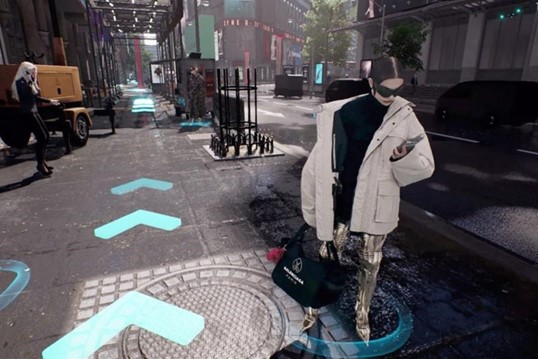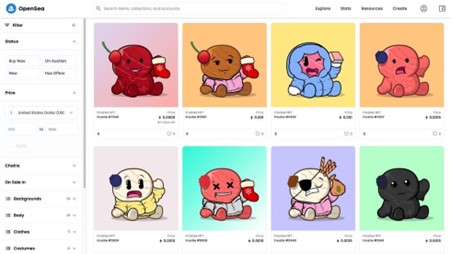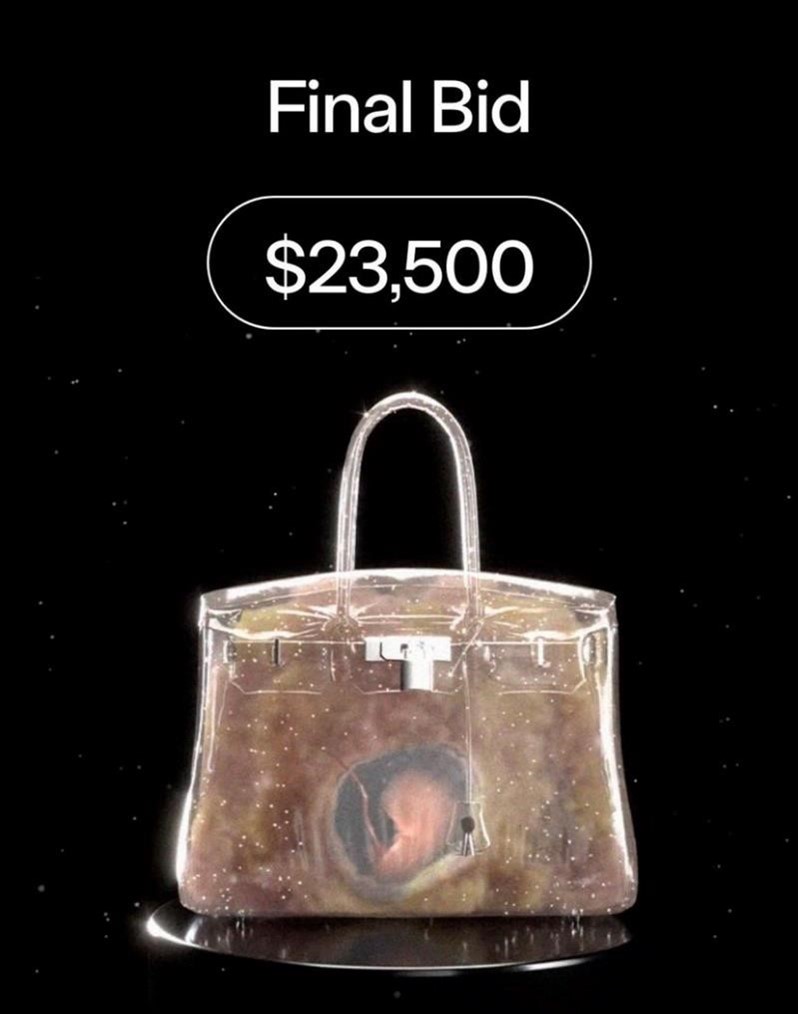
The easiest way to understand what the Metaverse is: Imagine a video game like The Sims through virtual reality goggles.


If you are an artist: You might be interested in NFTs because it gives you a way to sell your work that otherwise might not have a big market in the real world. Your cute sticker that doesn’t sell well in your local craft store might have better luck in the Metaverse. Also, NFTs will pay you a percentage every time the NFT is sold or changes hands, ensuring that if your work gets super popular and skyrockets in value, you’ll get the benefits. This is unlike a physical
artwork, where the painter of the Mona Lisa will never get any more money once the original piece is sold.
If you are a buyer: Buying art lets you financially support artists you like for a much trendier item. Purchasing an NFT also usually gets you some basic usage rights, like being able to post the image online or set it as your profile picture.
If you are more of a collector: You hope that your digital art gets used everywhere in the Metaverse, which will increase the value of the artwork you own. NFTs work like any other investment asset, where you buy it and hope that the value of it goes up one day, so you can sell it for a profit.

1. American Express – Metaverse banking services
The company has previously dipped its toes into the metaverse through NFTs via a collection for its cardholders with SZA, a musician. The credit card company’s application made in March 2022 shows an interest in offering banking services as well as cryptocurrency payment processing in the metaverse.
2. Johnson & Johnson and L’Oreal – Virtual cosmetics in the Metaverse
Johnson & Johnson filed two trademark applications for its brands Neutrogena and Aveeno to sell virtual beauty and skincare products as well as NFTs. L’Oreal also filed trademarks for brands including Kiehl’s, Urban Decay and Cerave. These trademarks cover virtual hair care preparation, body care cosmetics, and virtual perfume.
3. McDonald’s – Virtual food and beverage
McDonald’s filed at least 12 trademark applications on February 2022, which covers its golden arches as well as its in-house coffee brand, McCafe. McDelivery plans to operate virtual restaurants that gamers could enter to purchase food items, which would also be delivered in real life.
4. Victoria’s Secret – Virtual fashion shows
Victoria Secret fashion shows might be showcased in the virtual environment soon. The lingerie brand also filed a trademark application for retail store services to sell downloadable virtual goods in digital worlds.
5.Hugo Boss – Virtual clothing, footwear and watches
Hugo Boss filed a trademark application titled “BOSS” for its fashion items as well as household items like utensils, linens and fragrances. The German mid-level luxury brand may also be looking to host virtual fashion shows in the metaverse.
6.Skechers – Virtual footwear
Skechers filed eight trademarks in January to sell virtual goods, including footwear, clothing and other sports equipment. Along with the Skechers name and logos, “Twinkle Toes,” “Arch Fit,” “Go Walk” and “Bobs” were phrases claimed by the company.
7.Puma – Virtual sporting goods
Puma is another sports brand aiming to appeal to young consumers by filing trademarks to sell virtual clothing, footwear and sporting accessories. The company’s January filing includes, animated and non-animated designs and characters, avatars, digital overlays and skins, meaning gamers could customize their virtual personas in Puma gear.
8.Nike – NIKELAND in Roblox
Nike made efforts to expand into the metaverse through a partnership with Roblox to host NIKELAND, a 3D world where players can compete in a series of mini-games. Nike also filed seven trademark applications in November 2021, including the “Just Do it” slogan, the swoosh logos, as well as the “Air Jordan” and “Jumpman” logos.
9.New Balance – Digital sneakers
New Balance filed three trademark applications on January 13 in order to compete with other sneaker brands, including Nike and Puma.
10.Meta (Facebook)
CEO Mark Zuckerberg has a vision to expand the platform into the future of the internet. Their rebrand reintroduced the parent company of Facebook, Instagram, WhatsApp, and Oculus with a fresh name, then filed trademarks its new name in late October 2021. The rebranding was also perhaps the catalyst for most of our interests in the Metaverse, even though the concept is not new and has been in discussion for about 10 years.
Just like when social networks started back in the days, it may be difficult to adapt and fully understand it, but sooner or later most people and companies will end up dominating and using this new technology.
The race to own their piece of the metaverse and fashion’s virtual intellectual property is in full swing. While the laws have yet to catch up with the metaverse, you can still make an early start with trademark applications in Malaysia.
© Copyright 2024 | iPon9 | All Rights Reserved. Website designed by VeecoTech.
